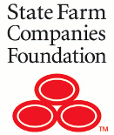Standard 7.3: Ongoing differentiated professional development
Professional development for beginning teachers should be guided by the Illinois Professional Teaching Standards and aligned with student performance, school improvement, and the documented needs of beginning teachers. Effective practices suggest a process of ongoing professional development including workshops, conferences, observations of experienced teachers, seminars, or other similar opportunities designed to increase the knowledge and skills of beginning teachers. Program leadership should provide opportunities for fluid professional development utilizing information from observations and reflections with their mentor.
Research shows that there are development cycles and associated needs that most beginning teachers go through at different points in time. These cycles help programs plan for the needs of a typical beginning teacher who may have concerns in areas such as parent conferencing, district or school policy, classroom management, differentiated teaching, summative evaluation process, and obtaining resources. Mentors and program coordinators should anticipate and plan around these typical needs.
Additional specific needs of beginning teachers can be attained through periodic needs assessments done by the program committee. These can be done at monthly/quarterly training sessions, through e-mails, anonymous surveys, or by the mentor teacher in a one-to-one manner. The data revealed can be aggregated and themes may become apparent. This can help programs focus either specific help to a beginning teacher or groups of beginning teachers with common needs.
In trainings for first-year teachers, programs typically cover basic instructional ideas, including the following:
- Classroom management and environment (including: start of year strategies, procedures, and rules as well as management throughout the school year)
- General instruction, teaching strategies, and pedagogy
- Lesson planning, unit planning, and curriculum
- Illinois Learning Standards, Illinois Professional Teaching Standards, and content-area standards
- Parent involvement and parent/teacher conferences
- Differentiation and working with English Language Learners
- Community partnerships/resources
- Lesson planning including substitute teacher plans
- Standards and frameworks for teaching
Meanwhile, trainings for second-year teachers typically provided information to help them fine-tune their skills, including the following:
- Differentiating instruction
- Formative and summative assessment methods
- Analysis of student work
Also, second- through fourth-year teachers can participate in book studies and other small-group learning communities designed to help them improve their practice.
Programs often provide between 10 and 20 total hours of professional development for beginning teachers, depending on program context, resources, time, and other limitations. The professional development can be provided after school—often on set days that do not conflict with other required school or district meetings—or using release time. Sometimes, this professional development is only for first-year teachers. When resources allow, programs are encouraged to also provide differentiated professional development for second-, third-, and/or fourth-year teachers. Programs can also provide differentiated workshops for beginning teachers with and without prior teaching experience. Ideas for these workshops include:
- Conduct a needs assessment of current beginning teachers or use exit survey data from last year’s beginning teachers (see Standard 9)
- Review what research tells us about beginning teacher needs
- Address employer expectations regarding the Illinois Professional Teaching Standards and relevant content-area standards
- Link to priorities (e.g., based on assessment data) and initiatives of the program (e.g., new curriculum)
- Provide opportunities to observe veteran teachers including their mentor.
- Link professional development to formative assessment (e.g., analyzing student work, reflection on practice)
- Professional development for beginning teachers should be aligned with student performance and school improvement
- Develop a professional-development calendar for beginning teachers


